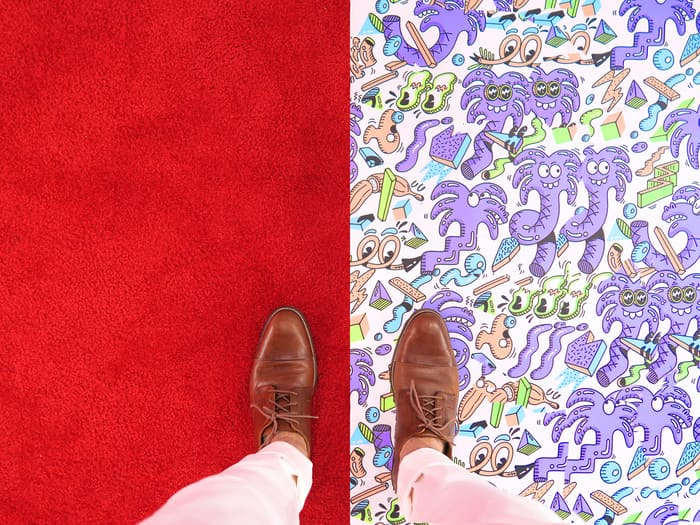We've all had our fair share of cringe-worthy bosses, but some TV shows take it to a whole new level with their hilariously terrible portrayals of toxic bosses.
From attention-hungry, and ruthless to intrusive, and unappreciative bosses, these TV characters will make you grateful for your Boss.
Don't believe us?
Then go, grab some popcorn, and let us take a look at the top 7 TV bosses who exhibit toxic traits!
Miranda Priestly from "The Devil Wears Prada"
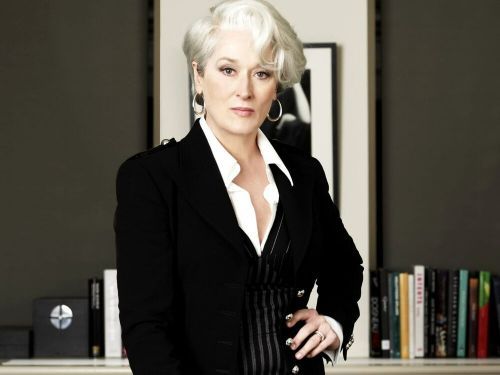
Miranda, played by Meryl Streep, takes the phrase "boss from hell" to a whole new level. She's a ruthless, demanding, and condescending fashion magazine editor who treats her employees like minions.
Her toxic trait? Where do we even begin?
Ruthless: Miranda Priestly is known for her ruthless behavior, constantly demanding perfection and showing little empathy towards others. For instance, she humiliates and belittles her assistant, Andy, in front of the entire office, showcasing her ruthless management style.
Manipulative: Miranda is highly skilled in manipulation, often using her power and influence to get what she wants. She manipulates Andy into compromising her values and personal life for the sake of her job, such as pressuring her to attend events that conflict with her personal commitments.
Narcissistic: Miranda's narcissistic traits are evident in her sense of entitlement and self-importance. She views herself as superior to those around her and often puts her own needs above others. In the movie, she prioritizes her career and reputation over her family, neglecting her daughters' emotional well-being.
Unappreciative: Miranda rarely shows appreciation or gratitude toward her employees' hard work. She takes their efforts for granted and often dismisses their contributions. In the movie, she scolds Andy for not meeting her high expectations, failing to acknowledge her efforts and sacrifices.
Toxic Work-Life Balance: Miranda's obsession with work creates a toxic work-life balance. She expects her employees to prioritize work above all else. This is seen when she pressures Andy to skip important personal events for work, causing strain in her personal relationships.
She's a master of manipulation, using fear and intimidation to keep her team in line. Miranda is the kind of boss that crushes creativity and makes her employees dread coming to work.
Michael Scott from "The Office"
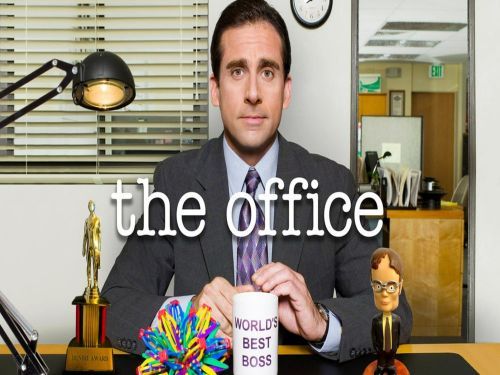
The fans of the show Love Michael Scott. But can you imagine working for him?
While Michael, played by Steve Carell, may be lovable, he's also a prime example of a boss who lacks basic management skills.
He's clueless, insensitive, and constantly makes inappropriate jokes that create a toxic work environment. Does he have some of the most talented people in his team? Yes! But does he help them with career growth? not at all.
There are so many toxic traits of Michael Scott. Here are the top 6:
Attention-seeking: Michael Scott is known for his constant need for attention and validation, often engaging in attention-seeking behavior. For example, he frequently interrupts meetings with inappropriate jokes or makes impulsive decisions to draw attention to himself, such as when he declares bankruptcy by simply yelling "I declare bankruptcy!" in the episode "Money."
Offensive: Michael often engages in offensive behavior, including making inappropriate comments and jokes that can be hurtful or offensive to others. In the episode "Diversity Day," he leads a misguided diversity training session that ends up being offensive and insensitive.
Inappropriate Boundaries: Michael frequently crosses professional boundaries, blurring the line between his personal and professional life. He often invades his employees' privacy and personal space, as seen in his intrusive and inappropriate questions about their personal lives, such as their relationships and finances. Remember when he hit Meredith?
Irresponsible: Michael displays a lack of responsibility in his role as a manager, often shirking his duties and neglecting his responsibilities. He frequently engages in unprofessional behavior, such as leaving the office to go on impromptu outings or disregarding work-related deadlines and commitments.
Lack of Self-awareness: Michael often lacks self-awareness and fails to recognize the impact of his actions on others. He often engages in cringeworthy behavior and fails to read social cues, leading to awkward and uncomfortable situations, such as his inappropriate and offensive "That's what she said" jokes.
Poor Leadership Skills: Michael's leadership style is often ineffective and counterproductive. He struggles with making tough decisions, lacks consistency in his management approach, and often prioritizes his own desires over the needs of his team. This is evident in his frequent mismanagement of conflicts and challenges in the workplace.
While he has some qualities that redeem him in the later seasons, he almost always prioritizes his need for attention over the well-being of his team, leading to awkward and uncomfortable situations that leave everyone cringing.
Bill Lumbergh from "Office Space"
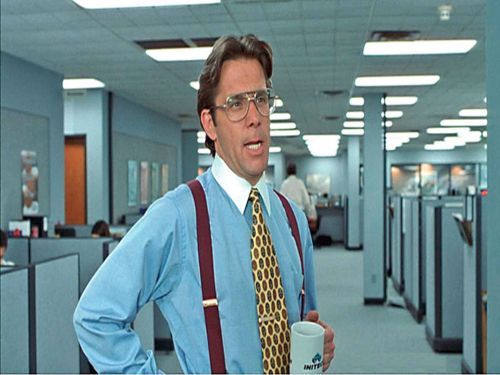
Bill, played by Gary Cole, is the embodiment of a passive-aggressive boss. He constantly micromanages his employees, obsesses over meaningless details, and never acknowledges their hard work.
His toxic trait?
He lacks empathy and treats his team like disposable pawns in his never-ending quest for corporate success. But this isn't the end. Here are a few more traits that make him a nightmare of a boss:
- Incompetence: Bill Lumbergh consistently demonstrates poor leadership skills, lacks basic knowledge of his employees' roles, and fails to effectively manage his team.
- Condescension: Bill Lumbergh frequently talks down to his subordinates, belittles their efforts, and dismisses their ideas and concerns.
- Micromanagement: Bill Lumbergh obsessively monitors and controls every aspect of his employees' work, stifling their autonomy and creativity.
- Lack of empathy: Bill Lumbergh shows little understanding or consideration for his employees' personal or professional challenges, often displaying a callous and unsympathetic attitude.
- Favoritism: Bill Lumbergh blatantly plays favorites, granting preferential treatment to certain employees while ignoring or mistreating others.
- Lack of integrity: Bill Lumbergh engages in unethical behavior, such as taking credit for his employees' work, making empty promises, and manipulating situations for his own benefit.
Montgomery Burns from "The Simpsons"
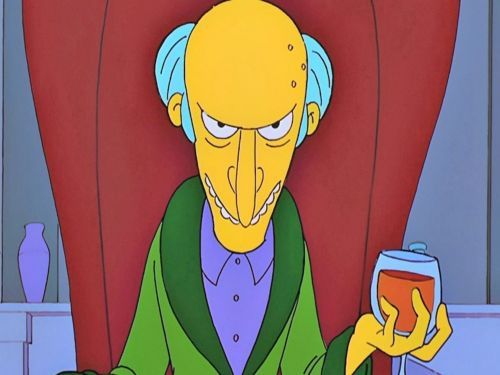
As the owner of the Springfield Nuclear Power Plant, Mr. Burns is the ultimate greedy, manipulative, and heartless boss.
He's willing to sacrifice the safety and well-being of his employees for his gain.
If you didn't know, his toxic trait is that he sees his employees as expendable and treats them with utter contempt, making them feel like they're constantly walking on eggshells.
- Ruthless greed: Mr. Burns is infamously known for his insatiable greed, constantly prioritizing his wealth and profits over the welfare of others, including his employees and the environment.
- Manipulation: Mr. Burns often manipulates and exploits others for his own benefit, whether it's through unethical business practices or using his power to control and deceive those around him.
- Callousness: Mr. Burns exhibits a lack of empathy or concern for others, often disregarding their well-being and feelings. He can be dismissive, cruel, and heartless in his interactions with others.
- Arrogance: Mr. Burns has an inflated sense of self-importance and superiority, looking down upon others and treating them with condescension. He often belittles and insults those who disagree with him or challenge his authority.
- Environmental disregard: Mr. Burns shows blatant disregard for the environment, polluting and exploiting natural resources without concern for the consequences, showcasing his lack of environmental consciousness and responsibility.
Jan Levinson from "The Office"
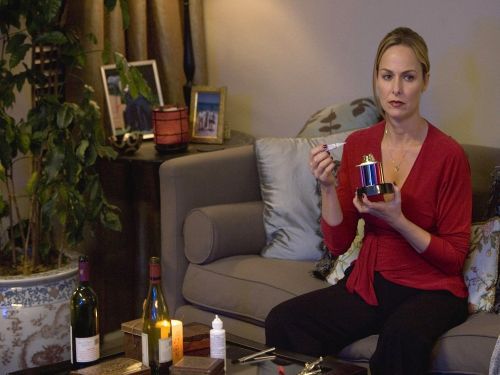
Jan, played by Melora Hardin, is a textbook example of a toxic boss with control issues. She's manipulative, emotionally unstable, and consistently makes poor decisions that affect her team's morale.
Manipulative: Jan Levinson is known for her manipulative behavior throughout the show. For example, she manipulates Michael Scott into firing an employee she dislikes in the episode "Lecture Circuit" by using her charm and seduction tactics.
Controlling: Jan exhibits controlling behavior, often trying to assert authority and make decisions for others. In the episode "Dinner Party," she forcefully controls the evening's agenda and humiliates her ex-lover Michael in front of their colleagues.
Selfish: Jan's selfishness is evident in her disregard for others' feelings and needs. She prioritizes her own desires above all else, as seen when she demands that Michael take her side over his job in the episode "Branch Wars."
Impulsive: Jan's impulsive nature often leads her to make irrational decisions without considering the consequences. For instance, she impulsively buys a lavish condo in the episode "The Deposition," despite financial concerns.
Emotionally volatile: Jan's emotional volatility is a recurring trait. She can switch between extreme emotional states quickly, exhibiting erratic and unpredictable behavior. In the episode "Baby Shower," she becomes aggressive and hostile towards her coworkers during a meeting, showcasing her emotional instability.
Her toxic trait is that she's unwilling to listen to feedback, dismisses her employees' concerns, and refuses to take responsibility for her mistakes, creating a toxic and chaotic work environment.
Patty Hewes from "Damages"
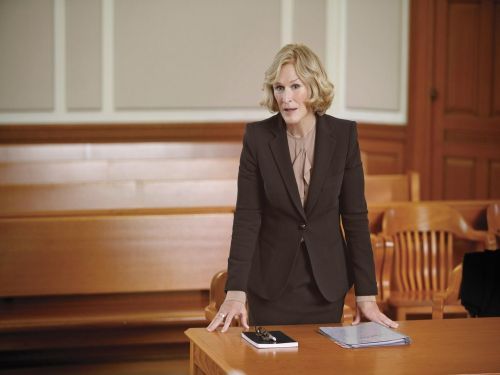
Patty, played by Glenn Close, is a brilliant lawyer but a terrible boss. She's manipulative, deceitful, and willing to do whatever it takes to win, even if it means throwing her team under the bus.
Her toxic trait?
She lacks loyalty and trust, constantly keeping her team on edge and creating a toxic work environment where backstabbing and betrayal are the norm. This is just the tip of the iceberg, here's more:
Manipulative: Patty Hewes is known for her cunning and calculating nature, often using manipulation as a tactic to achieve her goals. For example, in the TV show "Damages," she manipulates witnesses, employees, and even family members to get what she wants.
Ruthless: Patty Hewes has a relentless and cutthroat approach, showing little regard for others' feelings or well-being when it comes to achieving her objectives. She is willing to go to extreme lengths, including unethical and illegal actions, to win her cases and maintain her reputation.
Narcissistic: Patty Hewes often displays a sense of superiority and self-importance, with little empathy or consideration for others. She tends to put her own interests and ambitions above those of others, even exploiting vulnerabilities and weaknesses of those around her for her benefit.
Controlling: Patty Hewes tends to exercise control and dominance over those in her life, including her employees, clients, and even family members. She can be demanding and overbearing, using her power and authority to dictate and manipulate situations to suit her needs.
Overall, Patty Hewes' toxic traits in "Damages" make her a formidable and morally ambiguous character, but also highlight her dark and manipulative side that can have damaging effects on those around her.
All bosses in "Horrible Bosses"
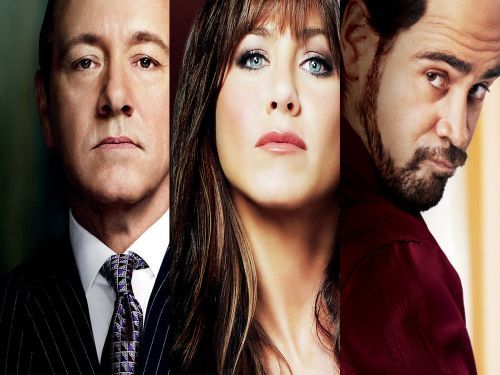
The name is enough for this one. Every Boss in this movie was a tyrant in their own right. Don't agree? Here are some toxic traits these characters showcased throughout the movie:
- Abusive behavior, such as harassment, bullying, or intimidation.
- Manipulative behavior, including taking advantage of employees for personal gain.
- Lack of professionalism, engaging in unprofessional or illegal activities at work.
- Irresponsibility, neglecting job duties, or failing to provide proper guidance and support to employees.
- Toxic leadership, utter disregard for employees' well-being, interests, and work-life balance.
Here's a closer look at each of these characters:
- Dave Harken (Kevin Spacey) - Toxic Traits: Manipulative, Abusive, Bad Work Ethic: Dave is portrayed as a manipulative and abusive boss who takes advantage of his position to exploit and control his employee, Nick. He uses fear and intimidation to manipulate Nick into doing his bidding, including blackmailing him and threatening his job security.
- Bobby Pellitt (Colin Farrell) - Toxic Traits: Irresponsible, Unprofessional, Bad Work Ethic: Bobby is depicted as an irresponsible and unprofessional boss who is often intoxicated or engaged in illegal activities at work. He neglects his duties as a boss, engages in unethical behavior, and shows a complete lack of professionalism, causing chaos and jeopardizing the success of the business.
- Dr. Julia Harris (Jennifer Aniston) - Toxic Trait: Sexual Harassment, Bad Work Ethic: Inappropriate behavior towards her subordinate, Nick, by making unwanted advances and engaging in sexually suggestive behavior at the workplace.
Conclusion
While these TV bosses may provide entertainment on screen, they serve as cautionary examples of toxic leadership in the workplace.
Their traits such as manipulation, lack of empathy, micromanagement, selfishness, and incompetence make them terrible bosses who create toxic work environments where employees suffer from stress, fear, and frustration.
So, if you encounter a boss who resembles any of these characters in real life, it may be time to update your resume and start looking for a new job!



